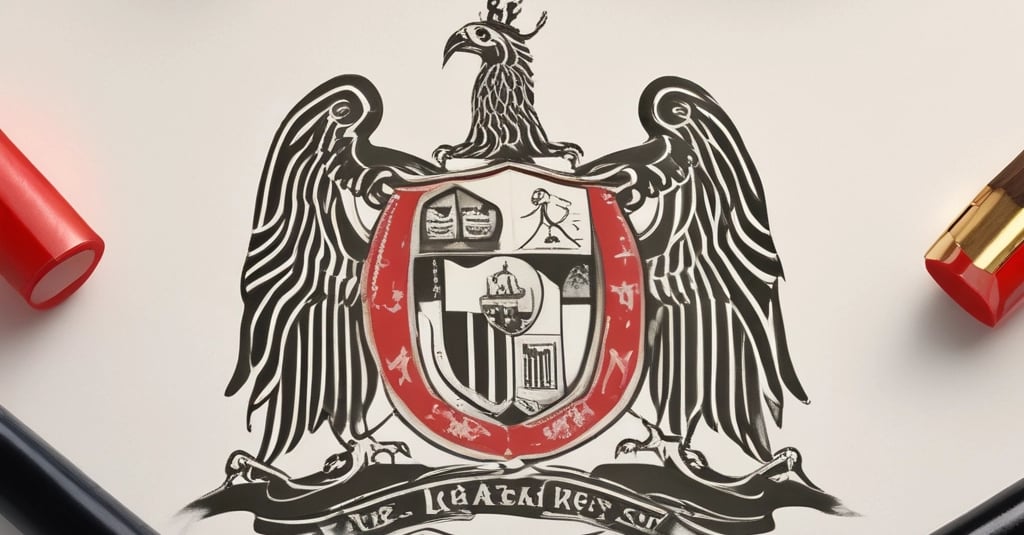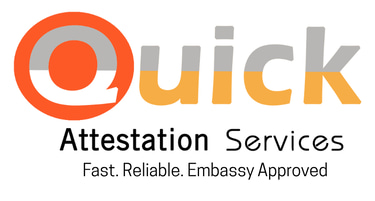Cross-Border Paperwork: Simplifying Embassy Document Authentication in the UAE
7/29/20255 min read


Understanding Cross-Border Paperwork
Cross-border paperwork is a critical aspect of international dealings, serving various purposes for individuals and businesses alike. It encompasses a wide array of documents, such as work permits, educational certificates, marriage licenses, and business contracts, all of which must adhere to legal standards set by the relevant authorities. Proper documentation is paramount when engaging in activities across borders, as it ensures compliance with the laws and regulations of both the home country and the host country.
One common scenario where cross-border documentation is essential involves professionals seeking employment abroad. Obtaining a work permit often requires submission of authenticated degrees, certifications, and proof of relevant qualifications. Failure to provide accurate documents may result in delays or outright denial of employment opportunities. Similarly, educational institutions frequently request authenticated academic records for students intending to study overseas, linking the importance of proper documentation to academic pursuits.
Marriage licenses are another form of documentation heavily scrutinized in international contexts. When couples aim to wed in a foreign country or seek recognition of their marriage elsewhere, they must ensure that their marriage certificate is valid and recognized by the local authorities. Inadequate documentation can lead to significant legal complications, affecting both personal lives and the legitimacy of future endeavors.
The process of preparing documents for international use typically entails several steps, including obtaining apostilles, certifications, and, in some cases, translations of documents into the host country's official language. These procedures help validate the documents and enhance their acceptance worldwide. Businesses dealing with international contracts also face similar requirements, as an improperly executed contract can have serious legal implications, ultimately hindering business operations.
In summary, a comprehensive understanding of cross-border paperwork is essential for anyone engaging in international activities. The significance of this documentation cannot be understated, as it plays a vital role in the legality and legitimacy of actions across borders.
The Role of Embassies in Document Authentication
Embassies serve a pivotal function in the realm of document authentication, particularly for individuals and entities engaging in cross-border activities. Their primary responsibility encompasses the verification of documents that are intended for use in foreign jurisdictions. This authentication process is crucial, as it assures that documents such as birth certificates, marriage licenses, academic degrees, and business contracts are recognized as valid and authentic by foreign authorities.
One of the foremost roles of embassies is the rigorous examination of documents. This involves verifying the original signatures, seals, and other identifying features to ensure the document's genuineness. In addition to initial document verification, embassies might also confer with relevant local governmental bodies to establish that the documents issued conform to established legal standards. This two-step verification process provides a layer of assurance that is necessary in preventing potential legal issues that may arise from accepting unverified documents in foreign jurisdictions.
Furthermore, embassies offer a variety of services that facilitate document authentication. These can include the notarization of documents, issuance of certificates of authenticity, and legalization services that affirm the legitimacy of both public and private documents. Many embassies also provide guidelines and checklists for individuals seeking authentication, helping them understand the required documentation and the procedures involved. This assistance is vital as it streamlines the process and minimizes errors, which can delay document acceptance in foreign countries.
In summary, embassies play an indispensable role in the document authentication process for cross-border transactions. Their meticulous verification processes not only uphold the integrity of the documents but also safeguard individuals against potential legal complications. By ensuring that all necessary validations are completed, embassies support the smooth functioning of international relations and ease the pathway to global engagement.
Steps for Document Authentication in the UAE
Obtaining document authentication in the UAE involves a systematic approach to ensure that your paperwork is accepted by your respective embassy. Here is a detailed step-by-step guide to facilitate the process.
The first step is to gather all necessary documents that require authentication. This may include educational qualifications, marriage certificates, or other legal documents. It is critical to ensure that these documents are original and that you have photocopies available. The next step involves verifying the specific requirements set by your embassy, as different countries may have varying procedures and paperwork.
After confirming the requirements, the next phase is to complete any applications or forms required by the embassy. Depending on the embassy's policies, these forms can often be accessed online, allowing for easier management. It is prudent to double-check that all information provided is accurate, as discrepancies can lead to delays.
The subsequent step is the submission of your documents to the embassy, either in person or through allowed online services. For many embassies, online submission has become a popular option, ensuring that individuals save time and navigate potential queues. Fees for authentication can vary significantly; it is advisable to review the embassy's fee schedule beforehand to prepare accordingly.
Processing times for document authentication can range from a few days to several weeks, depending on the specific embassy and type of document. To expedite the process, it is essential to ensure all documentation is completed, the application is accurately filled out, and to follow up where necessary. Common pitfalls include neglecting to check for authenticity and neglecting local notarization requirements, if applicable.
Finally, once you receive your authenticated documents, verify their integrity and consistency. This ensures that your paperwork meets the necessary criteria for use in your intended context. Adhering to these steps can significantly streamline your document authentication experiences in the UAE.
Quick Tips and Resources for Embassy Authentication
Navigating the embassy document authentication process can be overwhelming, especially for individuals requiring cross-border paperwork in the UAE. However, there are practical tips and resources available to help streamline this crucial undertaking. To begin, it is essential to verify which documents need authentication based on the purpose and destination country. Common documents include educational certificates, marriage licenses, and commercial invoices, among others. This step will save time and minimize unnecessary delays.
Creating a checklist of required documents is a beneficial approach. Most embassies provide detailed instructions on what is needed for various types of authentication. Individuals should gather original documents, as well as any required photocopies, identification, and application forms. Additionally, it is advisable to check the embassy's official website for specific instructions related to the type of document being authenticated. This ensures compliance with any unique requirements that may exist.
For those who prefer online assistance, several platforms can facilitate the management of embassy paperwork. Websites offering document certification services can save valuable time by providing step-by-step guidance on completing the authentication process. Furthermore, they often have customer support options to help address any queries or concerns that may arise during the procedure.
It is also beneficial to anticipate potential delays by allowing ample processing time, as some documents may require additional verification steps. If faced with complications, maintaining open communication with the embassy is crucial. Keeping records of correspondence and adhering to deadlines can help alleviate stress during the authentication process. By utilizing these tips and resources effectively, individuals can navigate the complexities of embassy document authentication in the UAE with increased ease.
